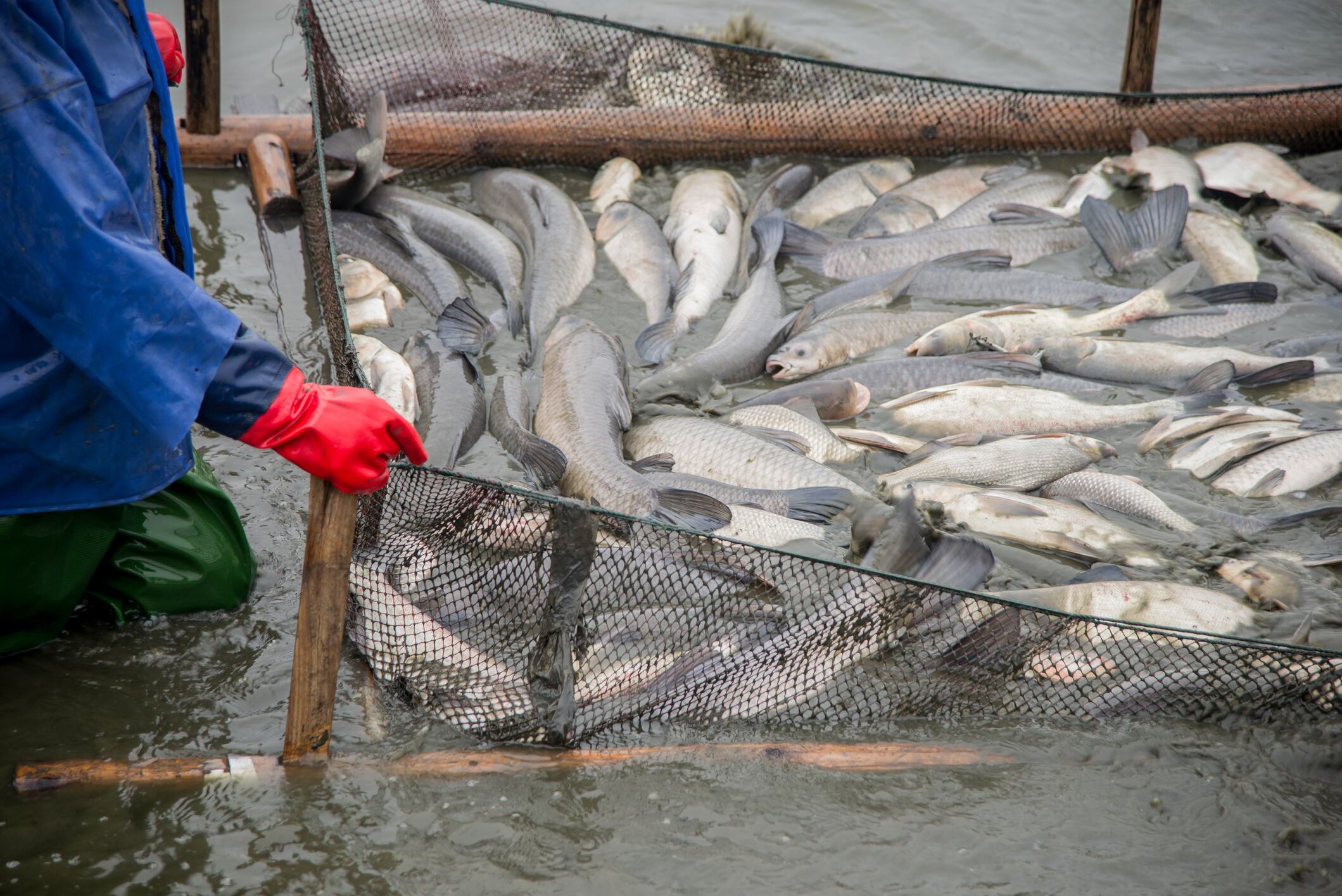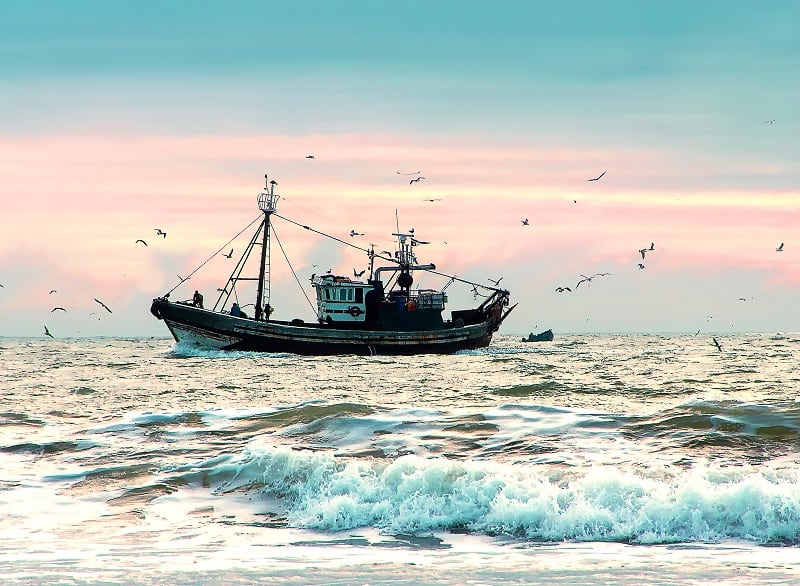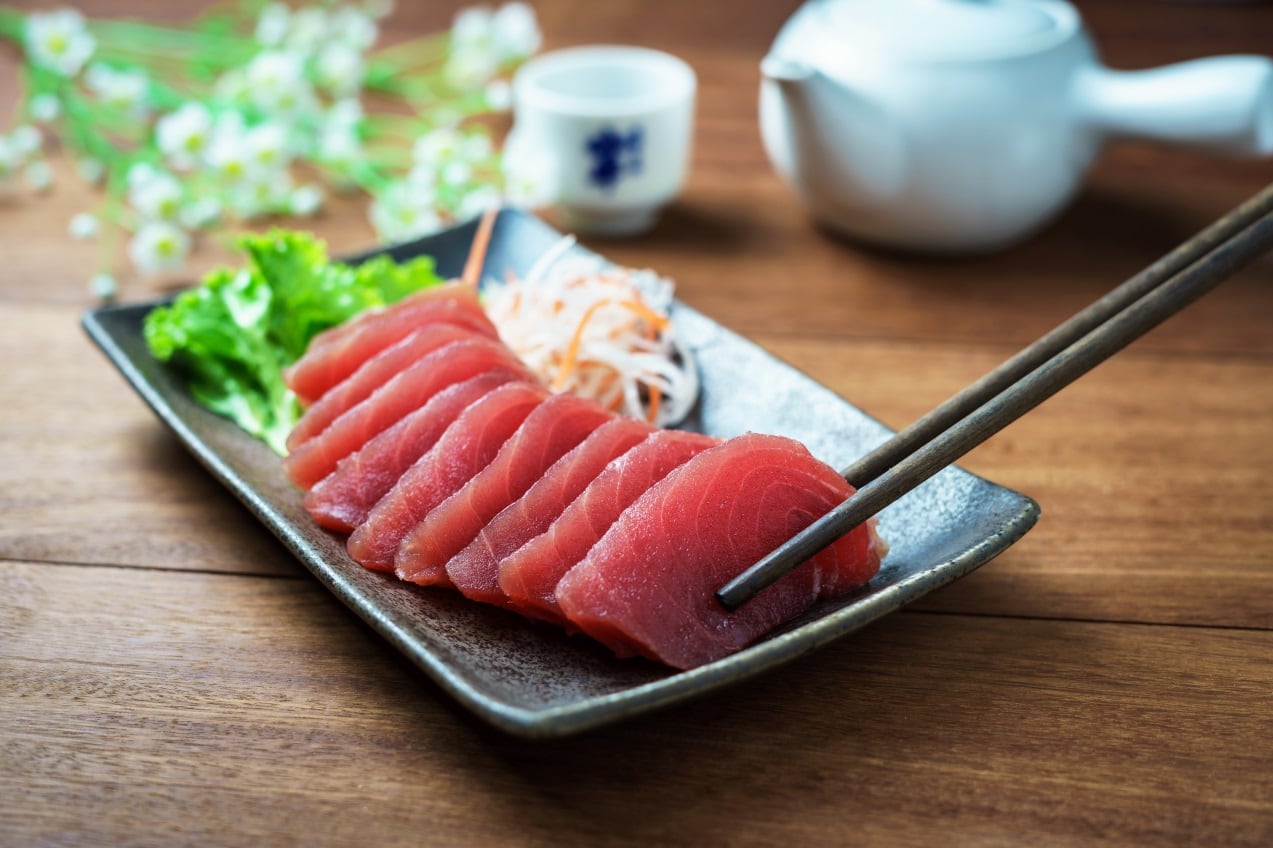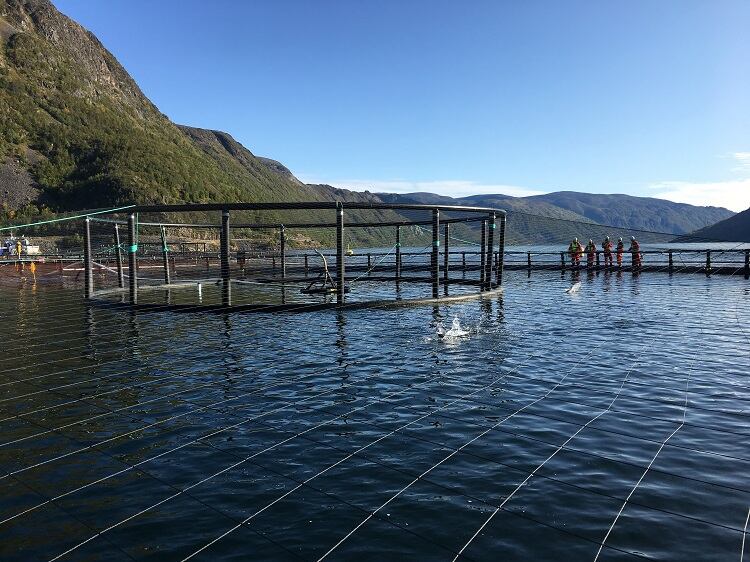The UK seafood industry is hoping the current coronavirus crisis may help attract more British consumers to eat home-caught seafood. But a new report warns about the impact of eating farmed fish.
UK consumers unknowingly consumed 177,000 tonnes of wild fish in 2019 by eating popular farmed seafood products including salmon and prawns, which are fed on fishmeal and fish oil (FMFO), according to the ‘Caught Out’ report written by sustainability campaigners the Changing Markets Foundation and Feedback.
They calculate that for every 100g portion of farmed fish (made up of salmon, trout, seabass, seabream, prawns and basa) consumers are eating, they are consuming 177g of wild fish and crustaceans used to feed to the farmed fish, thus UK consumers are unknowingly consuming 2.5 times more fish than they think.
Farmed fishing ‘unsustainable’
While the farmed fish industry claims to be a sustainable solution to the crisis of overfished global marine stocks, the campaigners claim this is far from the case. They say a fifth of global fish landings are being used to produce FMFO to supply industrial livestock and aquaculture, and demand is set to grow as the aquaculture industry expands.
The authors claim that the practice of feeding FMFO to farmed fish has severe implications for the health of ocean ecosystems and the communities that depend on them. A previous report from Changing Markets, called Fishing For Catastrophe, for example, found links between illegal and unsustainable fishing practices in India, Vietnam and The Gambia and farmed fish and seafood products sold by UK retailers.
They add that almost all of FMFO ingredients could otherwise be eaten directly by people.
Supermarkets ‘failing in their responsibility to protect our oceans’
The report went on to rank the top ten UK supermarkets according to the sustainability of the farmed seafood that they sell. This revealed that seven out of the ten supermarkets received less than 30% on the fish feed sustainability scorecard, with ALDI finishing bottom of the list on 12%, Waitrose receiving just 22% and only Tesco achieving a score over 50%.
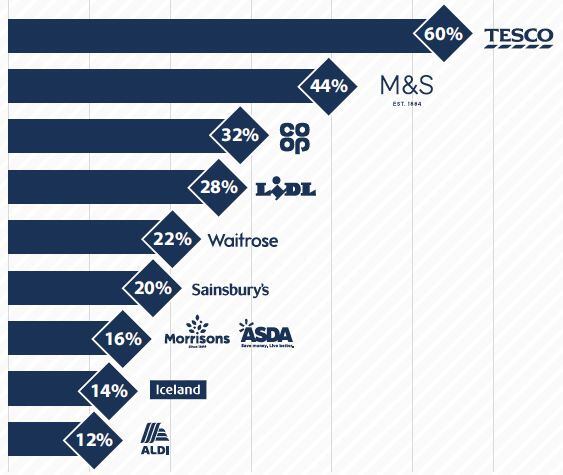
Lack of transparency for consumers
The report complained that at the store level, there was a lack of accessible information for customers regarding methods of production and provenance. In many cases it was not easy to tell if the fish was farmed but wild-caught fish was clearly labelled as such.
“Seafood sustainability is an important issue for UK shoppers,” said the report. “The UK public is largely aware of the need to buy wild fish and seafood that is not fished in unsustainable or illegal ways. Yet, while consumption of farmed seafood continues to rise, customer awareness of its origins and the sustainability implications of different aquaculture methods is low. Many shoppers may even assume the farmed fish they buy is wild.”
The report’s authors urged supermarkets to ‘lead the way on ocean stewardship’ and show responsibility ‘when it comes to the farmed seafood on their shelves’.
They called on supermarkets to:
- Phase out the use of FMFO sourced from wild-caught fish in its aquaculture supply chain by 2025 at the latest.
- Commit to offering a wide range of seafood – including a greater diversity of sustainably caught wild fish and farmed seafood that doesn’t rely on wild fish in feed, such as mussels.
- Adopt high standards of transparency and corporate policy on their suppliers, including full disclosure of suppliers – from source fisheries upwards.
- Reduce reliance on certification as a proxy for sustainability by developing their own robust and transparent standards for sustainably produced seafood, including farmed seafood.
Their message to consumers was to diversify their consumption of seafood to include a wider range of sustainably fished wild species, as well as farmed species (such as mussels) that do not rely on feed containing FMFO.
Jessica Sinclair Taylor from Feedback said: “Supermarkets have enormous power over supplier standards and the choices their customers make, and seafood selection is no different.
“By prominently marketing farmed seafood like salmon and prawns which are fed on wild fish and crustaceans, retailers are promoting an extractive industry which is threatening the long-term health of our oceans.
“Behind the blue planet rhetoric, supermarkets need to get real about the impact of aquaculture, and commit to targets to end the use of wild fish in aquaculture feed.”
Natasha Hurley from Changing Markets added: “UK supermarkets make bold claims about the sustainability of the farmed fish that they sell, however, our research has found that these claims are not backed up by the reality of how their farmed fish is produced.
“Our investigations have shown that the UK’s leading retailers are linked to highly destructive fishing practices in Africa and Southeast Asia which are devastating marine ecosystems and depriving people of food.
“UK shoppers will be shocked to learn that for every 100g of farmed fish they are eating, they are consuming more than 172g of wild fish as well, which is taking food away from vulnerable communities and causing disastrous environmental impacts.
“By turning a blind eye to this, retailers are both failing in their responsibility to preserve the oceans and misleading their customers by hiding the true impact of their products.”
Supermarkets say fishmeal is becoming progressively more efficient and sustainable
Waitrose, which was criticised in the report for not clearly labelling farmed seafood products on its shelves, and for a “failure to recognise the importance of ending farmed fish reliance on wild-caught marine ingredients”, told FoodNavigator: “Sustainability is a top priority for our business and Waitrose & Partners pioneered responsible fish sourcing in supermarkets more than 20 years ago. We continue to lead on aquaculture sustainability today with 90% of our fish and shellfish responsibly sourced. All our fish and shellfish demonstrates a high level of traceability and our farmed fish buying policy supports the development of sustainable aquaculture, focusing on high standards of animal welfare and minimising the impact on the environment and delicate marine ecosystems.”
Leah Riley Brown, Sustainability Policy Advisor at the British Retail Consortium, said: "Retailers are dedicated to producing and sourcing marine products responsibly, working closely with stakeholders and suppliers to ensure products meet customer expectations on sustainability. Fishmeal and fish oil are important and natural raw materials in aquafeed and the use of wild-caught raw material as marine ingredients in fishmeal is becoming progressively more efficient and sustainable.”


